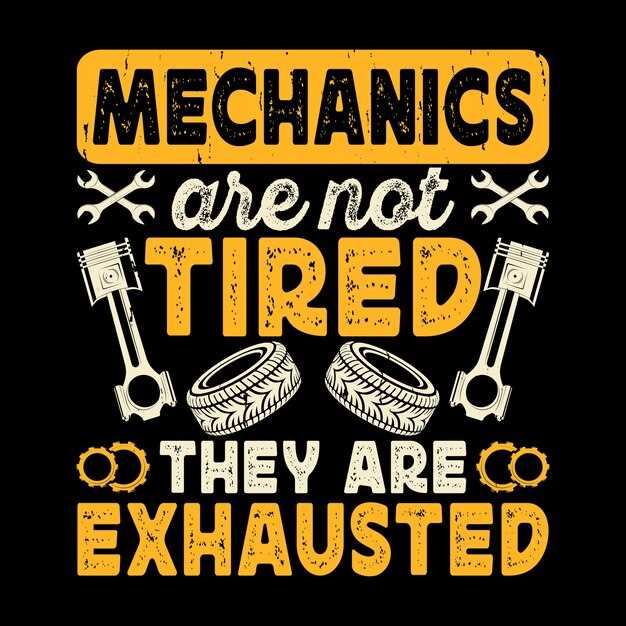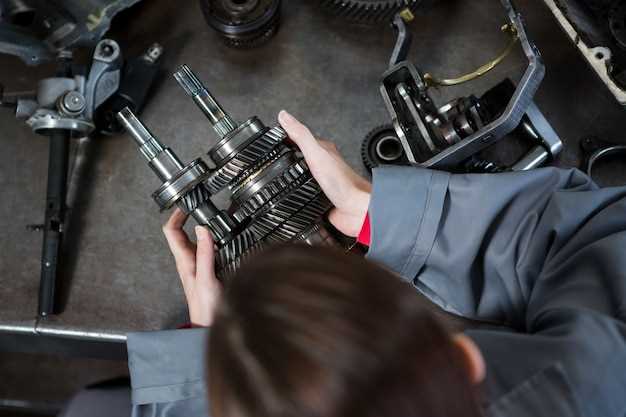
The heart of your vehicle, the engine, is a complex assembly of parts that work in harmony to power your rides. Over time, however, wear and tear can lead to significant issues that may require an engine rebuild. Recognizing the signs that indicate your engine is struggling is crucial to preventing further damage and ensuring your car remains reliable.
One of the primary indicators that your engine may need a rebuild is a noticeable drop in performance. If you find yourself accelerating slower than usual, or if your engine frequently misfires, it’s essential to pay attention. These symptoms often suggest that internal components are failing, and catching these issues early can save you both time and money in the long run.
Another critical sign your engine may require a rebuild is excessive oil consumption. If you’re frequently topping off your oil or noticing leaks under your vehicle, it’s indicative of internal damage or wear. This problem can lead to severe consequences, making it imperative to address the situation promptly. Ignoring these warning signs can result in engine failure, necessitating not just repairs, but a complete rebuild.
Listening to your engine is also key; unusual noises like knocking or tapping can be a sign that something is amiss. These sounds often arise from loose or damaged components, which can worsen over time. Promptly addressing such noises can extend the life of your engine and avert the need for a costly rebuild.
Understanding these signs and taking timely action is essential. If you notice any of these symptoms, it may be time to consult a professional mechanic who can provide a thorough inspection. Remember, the sooner you address engine issues, the better the chances of a simple fix rather than a complete rebuild.
Unusual Noises Indicating Internal Damage

Paying attention to your engine’s sounds is vital for maintaining vehicle health. Unusual noises can signify that your engine is experiencing internal damage due to time and wear. Recognizing these sounds early can prevent more severe issues down the line.
Knocking or Pinging Sounds: These noises often indicate that there is a problem with the engine’s internal components, such as worn bearings or damaged pistons. Continuous knocking can signal that the engine is losing lubrication, which can lead to more extensive wear over time.
Rattling Sounds: A rattling noise might suggest that parts within the engine are loose or worn out. This could be a result of time-related wear on the engine mounts, or it could be indicative of a failing timing chain or belt. Addressing these issues promptly is crucial to prevent further damage.
Hissing or Squealing: These sounds may point to a potentially serious problem, such as a leak in the cooling system or issues with the serpentine belt. A hissing noise often indicates overheating, which can lead to significant wear if not checked immediately.
Scraping or Grinding: If you hear scraping noises, this often indicates that metal components are making contact inappropriately, possibly due to worn bearings or a damaged crankshaft. This type of damage can escalate quickly if the issue is not addressed in a timely manner.
Monitoring these warning sounds is essential for assessing your engine’s health. If you hear any unusual noises, it is crucial to consult with a professional mechanic to determine the extent of the damage and whether a rebuild is necessary.
Symptoms of Decreased Performance and Power Loss
One of the most noticeable signs that your engine may require a rebuild is a significant decrease in performance. This can manifest as sluggish acceleration, where the vehicle fails to respond promptly when pressing the gas pedal. Such symptoms may indicate that internal components are experiencing wear, leading to inefficiencies in power delivery.
Additionally, you may encounter a lack of power during high-demand situations, such as climbing steep hills or merging onto highways. If the engine struggles under load, it suggests that essential parts, such as piston rings or bearings, might be compromised, prompting the need for a rebuild to restore optimal functionality.
Another crucial indicator is a drop in fuel efficiency. If you notice that your vehicle consumes more fuel than usual without any changes in driving habits, it could signify that the engine is not operating at its intended level due to internal wear. This decreased efficiency often correlates with power loss, as the engine works harder to compensate for its diminished capability.
Engine noises such as knocking, ticking, or excessive vibration can also point to underlying issues. These sounds might suggest that components are deteriorating, which can severely impact performance. When these symptoms appear, it may be time to consider a rebuild to address the root causes and restore your engine’s power.
Lastly, frequent stalling or rough idling can serve as critical warning signs. If your engine struggles to maintain a steady idle or frequently stalls, it indicates that essential parts may be wearing out, affecting overall power and performance. Addressing these symptoms early can prevent further damage and ensure your engine remains reliable.
Evaluating Engine Wear and When to Consider a Rebuild

Assessing engine wear is crucial for determining the longevity and performance of your vehicle. Over time, engines experience various forms of wear due to factors such as friction, heat, and the quality of engine oil. Regular maintenance can help mitigate some of this wear, but eventually, signs may indicate that a rebuild is necessary.
One of the first indicators of engine wear is a decrease in performance. You may notice a lack of power, increased fuel consumption, or poor acceleration. These symptoms often arise from internal components such as piston rings, bearings, or valves becoming worn or damaged. If these issues persist despite regular maintenance and repairs, it could be time to consider a rebuild.
Another critical factor to evaluate is the presence of unusual noises such as knocking or tapping sounds. These noises can indicate serious wear and potential malfunctioning of engine components. Addressing these symptoms early can save you from more extensive damage and higher repair costs down the line.
Additionally, check for excessive oil consumption or leaks. If your engine consumes more oil than usual or you frequently need to top it up, it signifies wear in the piston rings or valve seals. This situation warrants an evaluation to determine if a rebuild is the best course of action.
Lastly, consider the engine’s age and overall condition. If your engine has high mileage and has been subjected to poor maintenance practices, a rebuild may be necessary even if symptoms aren’t immediately apparent. In such cases, investing in a rebuild can restore performance and extend the life of your vehicle.
In conclusion, evaluating engine wear involves monitoring performance, listening for unusual noises, inspecting for oil leaks, and considering the engine’s overall condition. If multiple signs point toward significant wear, it may be time to rebuild your engine to ensure reliability and performance on the road.




